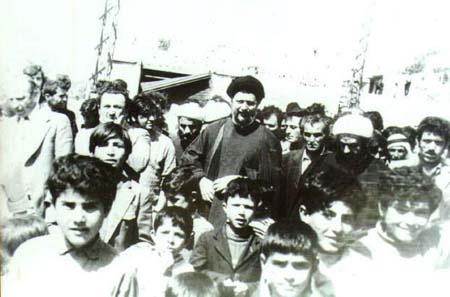Qaddafi Out, Imam Musa Returns

As Colonel Qaddafi desperately clings to power in his hometown of Sirte, Tehran and Beirut seek a ray of hope-- wishing to hear credible news about the fate of the popular figure Imam Musa Sadr, the Iran-born Shi’a cleric and savior of the once underprivileged Shi’as of Lebanon. Iranian Diplomacy interviewed Masoud Edrisi, Iran’s former ambassador to Lebanon, on the significance of Musa Sadr’s fate for Tehran and Beirut.
IRD: The mystery of Imam Musa Sadr’s fate has come to the fore following the liberation of Tripoli by anti-Qaddafi forces. Why hasn’t the heated saga of this Iranian-born cleric subsided in thirty-three years?
ME: Imam Musa Sadr was the de facto and de jure leader of the Shi’a community in Lebanon. But more important than his stature among the Lebanese Shi’as was his advocacy of unity among the diverse sects of the country. Mr. Sadr’s charisma and doctrine made him the centerpiece of pro-unity campaigns in Lebanon. He was also popular figure among the Christians, besides the Sunni and Shi’a Muslims. It was exactly this popularity, influence and agenda that instigated his kidnapping by Qaddafi. The Libyan dictator coveted the role of Arab World leader at that time, and Imam Musa Sadr had turned into his nemesis.
IRD: Why does the Arab League refuse to address the issue of his missing in its statements, despite Lebanon’s insistence?
ME: They never agreed to probe the case, first because he was a Shi’a leader who as I said, was deeply popular among all Lebanese factions. The Sunni-Shi’a concerns prevent the League from probing the case. But more importantly, Imam Musa Sadr was originally Iranian, and the Arab League’s bumpy relations with Iran is another factor that renders them unwilling to resolve the case.
IRD: The Sadr family has frequently complained of the indifference of Iranian administrations in pursuing the case. We recently saw Foreign Minister Ali-Akbar Salehi hold a conversation with the head of the Libyan transitional council about the fate of Imam Musa Sadr. Do you agree that Iran has shown negligence in the past?
ME: I don’t think so. I used to serve as the deputy foreign minister for Middle East and North African affairs, and I know about the serious efforts that took place during Kamal Kharrazi’s tenure over the fate of Imam Musa Sadr. A committee was formed at that time on President Khatami's order, and it held regular negotiations with Libyan officials to resolve the matter. The Libyan party was, however, unwilling to cooperate and that gave some the perception that Iran was also disinterested in the story.
IRD: With the Libyan revolutionaries liberating Tripoli, do you see any chance that Imam Musa Sadr’s fate can be finally revealed?
ME: Definitely this is the best moment to shed light on the case. The new government will not have any problems with investigating the mystery. Iran and Lebanon have reactivated the issue in order to reach a conclusion.

